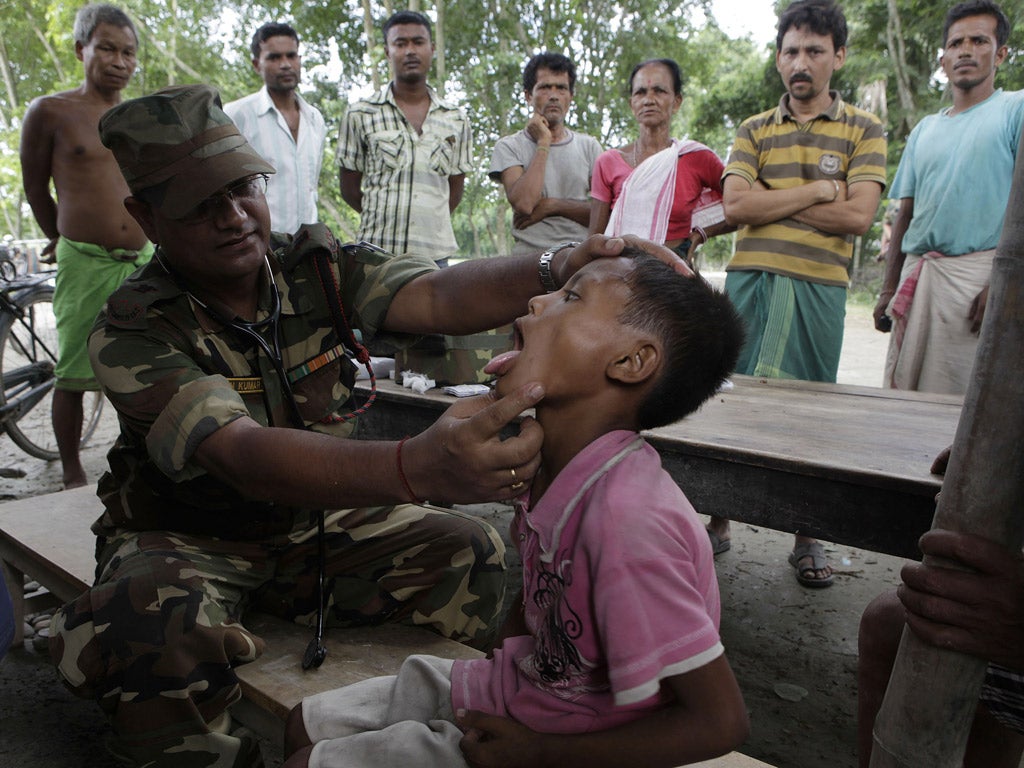Big pharma is cut out by India's plan to bring medicine to masses
Ambitious $5bn push deals blow to global firms with focus on generic alternatives above branded drugs

Your support helps us to tell the story
From reproductive rights to climate change to Big Tech, The Independent is on the ground when the story is developing. Whether it's investigating the financials of Elon Musk's pro-Trump PAC or producing our latest documentary, 'The A Word', which shines a light on the American women fighting for reproductive rights, we know how important it is to parse out the facts from the messaging.
At such a critical moment in US history, we need reporters on the ground. Your donation allows us to keep sending journalists to speak to both sides of the story.
The Independent is trusted by Americans across the entire political spectrum. And unlike many other quality news outlets, we choose not to lock Americans out of our reporting and analysis with paywalls. We believe quality journalism should be available to everyone, paid for by those who can afford it.
Your support makes all the difference.India is planning a multibillion-dollar push to bring free medicines to the hundreds of millions of its citizens who, despite the country's economic revival, still languish without access to the very basics of health care.
The $5bn initiative, which is slated to be rolled out by the end of this year, will offer 348 essential drugs to patients across the country. In a blow to the West's big pharmaceutical firms, the planned scheme will largely cut out branded drugs, opting instead for cheaper generic alternatives.
News of the plan comes as the Congress-led administration in Delhi attempts to shore up public support after a raft of corruption scandals and crushing electoral losses in state polls. A recent report confirming a slowdown in economic growth has only served to sharpen criticism of the government.
Now, Delhi is plotting a multi-billion dollar health-care drive, using its network of government-funded hospitals and clinics to deliver free drugs across a country where, despite the much-vaunted boom of recent years, more than two million young children die every year from preventable infections, according to Unicef.
Infant mortality stands at 63 per 1,000 live births, while a recent paper in the Lancet medical journal said that of the nearly five million children under five who succumbed to preventable diseases such as pneumonia, diarrhoea and malaria in 2010, almost half had come from five countries: Nigeria, the Democratic Republic of Congo, Pakistan and, notably, China and India.
All the while, the Indian state spends so little on health care as a proportion of GDP that only a handful of countries fare worse, according to the OECD.
The bulk of the cash for the free medicine plan will come from central coffers, while state governments will be asked to shell out an additional third of the required funds. The Ministry of Health and Family Welfare said it had put forward proposals worth around $3.64bn. The additional funding – from the states – will boost the investment to around $4.9bn, signalling, if approved, "a giant step in vastly expanding the access to medicines", the Ministry said. A template already exists in the western state of Rajasthan and Tamil Nadu in the south, where health schemes are reported to have been successful.
The focus on generic medicines chimes both with the need for affordability and the dynamics of India's pharmaceutical market. Generics – or cheaper copies of expensive branded medicines whose patents have run out – accounted for around 90 per cent of the total drug sales in the country in 2010, according to Reuters data.
The gulf between the cost of branded drugs and generic alternatives is often vast. The Rajasthan state government, for instance, buys the generic version of a popular cholesterol drug for just over 6 rupees (7p) for a strip of 10 tablets, according to official figures quoted by India's Economic Times newspaper. In contrast, consumers opting for a branded alternative face costs of 103 rupees.
Although reports indicate that doctors participating in the planned scheme will be able to use 5 per cent of the sanctioned funds to buy medicines absent from the approved list of 348 generic drugs, the initiative presents a fresh challenge for global pharmaceutical giants such as GlaxoSmithKline and Pfizer.
Big pharma, as that end of the industry is known, is already struggling to forge new avenues for growth. Being locked out of a major initiative in a key emerging market won't help.
"Without a doubt, it is a considerable blow to an already beleaguered industry, recently the subject of several disadvantageous decisions in India," KPMG's European head of chemicals and pharmaceuticals, Chris Stirling, told Reuters.
"Pharmaceutical firms are likely to rethink their emerging markets strategies carefully to take account of this development, and any similar copycat moves across other geographies."
Join our commenting forum
Join thought-provoking conversations, follow other Independent readers and see their replies
Comments